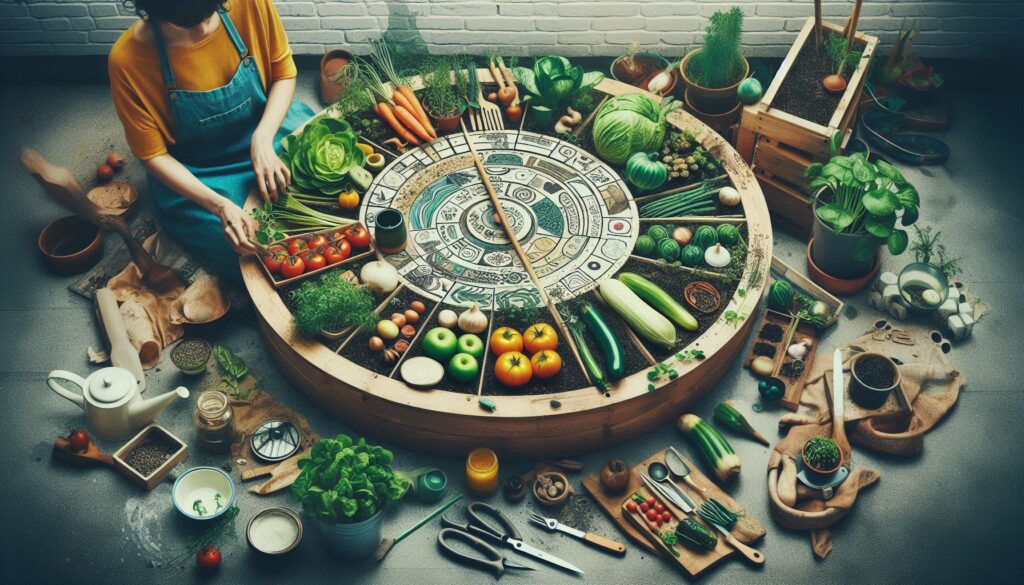Urban gardening has become a popular trend in recent years as city dwellers seek to reconnect with nature, grow their own food, and bring greenery into their urban environments. DIY urban gardening projects offer a creative and rewarding way to transform small spaces, such as balconies, rooftops, and community gardens, into thriving green oases. In this article, we will explore a variety of DIY urban gardening projects that are accessible, affordable, and sustainable, allowing urban residents to cultivate their own green spaces and contribute to a more sustainable and resilient city environment.
Container Gardening:
Container gardening is a versatile and practical way to grow plants in urban spaces with limited access to soil or outdoor land. With a wide range of containers available, from traditional pots and planters to recycled containers and vertical hanging systems, urban gardeners can create vibrant gardens on balconies, patios, windowsills, and even indoors. Container gardening is ideal for growing herbs, vegetables, flowers, and succulents, providing opportunities for urban residents to enjoy fresh produce and colorful blooms in their own home.
Vertical Garden Walls:
Vertical garden walls, also known as green walls or living walls, offer a creative and space-efficient solution for growing plants vertically in urban environments. DIY vertical gardening projects can involve installing trellises, modular planters, or hydroponic systems on walls and fences to create lush and flourishing vertical gardens. Vertical gardens not only maximize green space in small areas but also provide aesthetic appeal, air purification, and insulation benefits, enhancing the overall quality of urban living spaces.
Raised Bed Gardens:
Raised bed gardens are popular DIY projects for urban gardeners looking to grow vegetables, fruits, and flowers in a controlled and accessible environment. By building raised beds using wood, cinder blocks, or recycled materials, urban residents can create productive garden plots on rooftops, patios, or community spaces. Raised bed gardens offer advantages such as better soil drainage, weed control, and easy access for planting, watering, and harvesting, making them a practical and rewarding option for urban gardening enthusiasts.
Hanging Gardens and Vertical Planters:
Hanging gardens and vertical planters are innovative DIY solutions for adding greenery to small urban spaces such as balconies, stairwells, and windows. By suspending planters from ceilings, walls, or railings, urban gardeners can create striking displays of cascading plants, flowers, and herbs, transforming unused vertical space into beautiful living installations. Hanging gardens and vertical planters can be made from a variety of materials, including wood, metal, fabric, and recycled containers, allowing for endless creative possibilities in urban gardening design.
Indoor Herb Gardens:

Indoor herb gardens are practical and space-saving DIY projects that allow urban residents to grow fresh herbs year-round in their kitchens, dining areas, or windowsills. By using small pots, mason jars, or vertical herb planters, individuals can cultivate a variety of culinary herbs such as basil, mint, rosemary, and parsley for cooking and seasoning. Indoor herb gardens not only provide easy access to fresh and flavorful herbs but also enhance indoor air quality, reduce stress, and promote sustainability by reducing food miles and packaging waste.
Community Garden Spaces:
Community garden spaces are collaborative DIY projects that bring together urban residents to create shared green spaces for growing food, flowers, and native plants. Community gardens can be established in vacant lots, schoolyards, parks, or rooftop spaces, providing opportunities for neighbors to connect, learn, and cultivate a sense of community through gardening. Community garden projects may involve raised beds, composting stations, rainwater harvesting systems, and educational workshops to promote sustainable gardening practices and environmental stewardship among participants.
In conclusion, DIY urban gardening projects offer an accessible and creative way for city residents to engage with gardening, sustainability, and community building in urban environments. Whether through container gardening, vertical garden walls, raised bed gardens, hanging gardens, indoor herb gardens, or community garden spaces, urban dwellers can play a vital role in greening their city spaces, promoting biodiversity, and fostering a deeper connection with nature. By embracing DIY urban gardening projects, individuals can contribute to a more resilient, sustainable, and vibrant urban landscape that benefits both people and the planet for generations to come.

